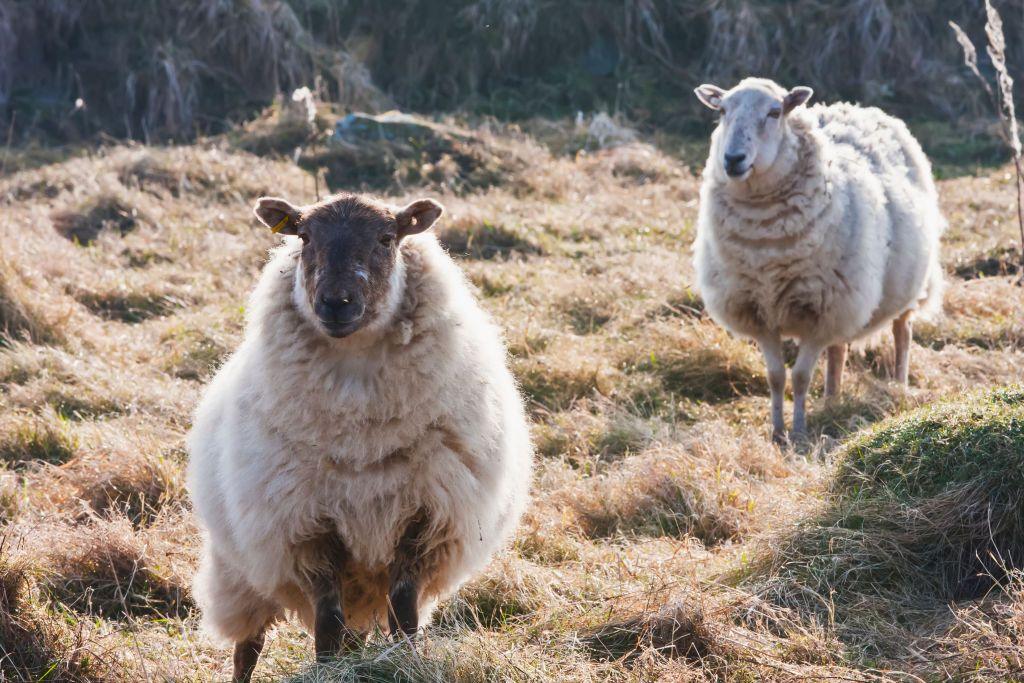Sheep farmers say wool prices making a comeback
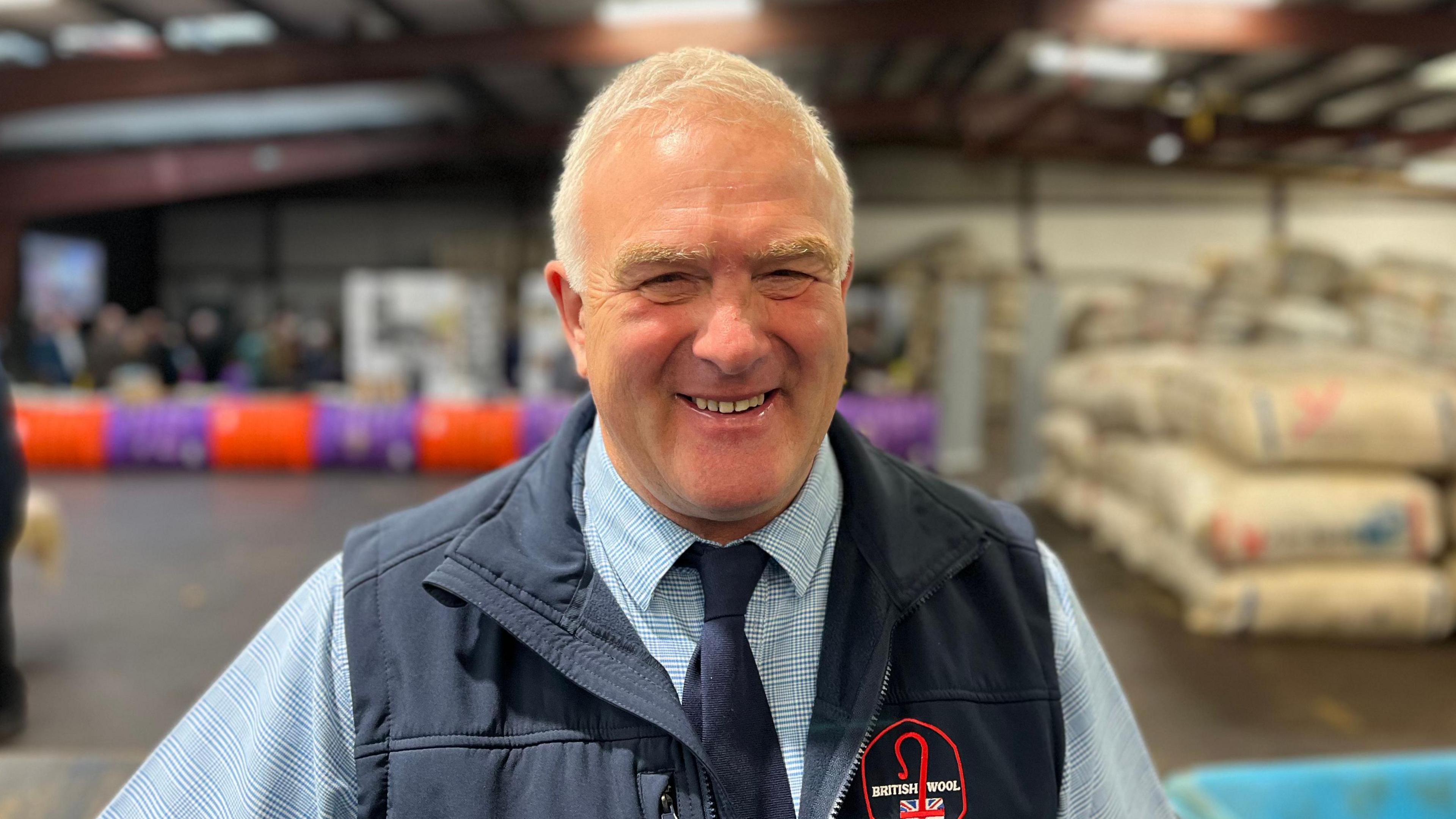
Jim Robertson, a farmer from Langholm and chairman of British Wool, is hopeful of a further recovery in prices
- Published
Fashion's almost forgotten fabric is on the way back as fleece prices enjoy record rises.
British wool's value plummeted during the 1970s and 80s with the introduction of many manufactured materials for clothing and upholstery.
The once lucrative industry continued to decline into this century with many sheep farmers opting to burn fleeces rather than collect the pennies being paid.
But, according to industry insiders, demand is returning with the sharpest price increase in more than a decade recently being recorded.
Sheep wool torched in protest over 'measly' prices
- Published13 February 2024
Prices for wool 'have gone through the floor'
- Published13 August 2021
Shepherd scraps wool due to Covid-19 price slump
- Published22 July 2020
The most recent sale of graded wool saw a year-on-year price increase of almost 20% - from around £1 per kilogram to a current price of £1.18.
Similar rises in raw wool have also been recorded at sales in New Zealand recently.
Industry experts believe that a worldwide decline in sheep numbers, along with eco-conscious shoppers switching to wool, have resulted in price increases.
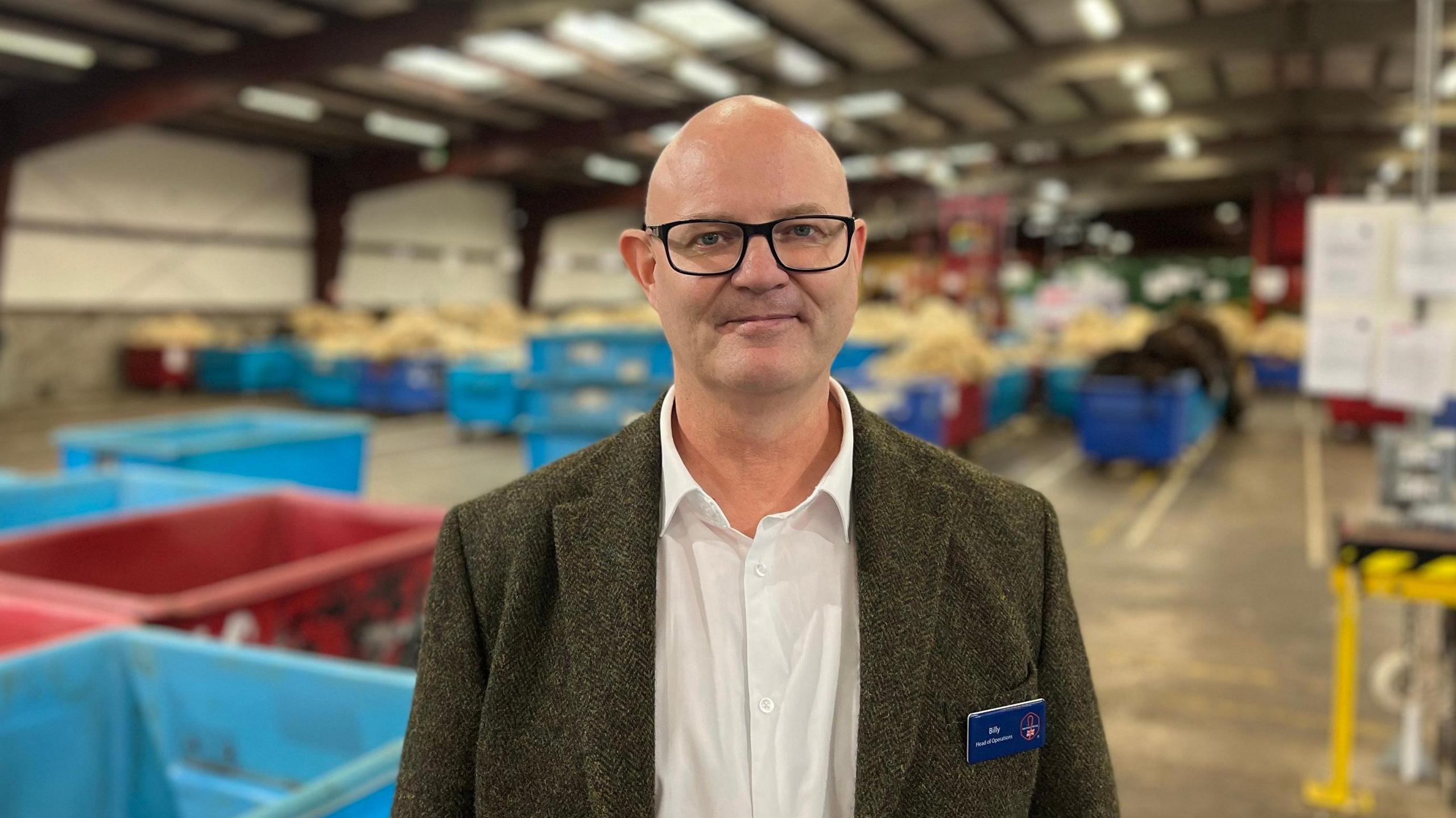
Billy Hewitson, head of operations at British Wool, said the industry has been through some tough times
Billy Hewitson, head of operations at British Wool, said: "The wool industry has been through some tough times, there's no getting away from that, but the future is looking rosy.
"We have manufacturers from across the world - particularly China - bidding at our sales and this trend of increasing prices is continuing.
"We are at a resurgence stage for wool, and I can't see that stopping."
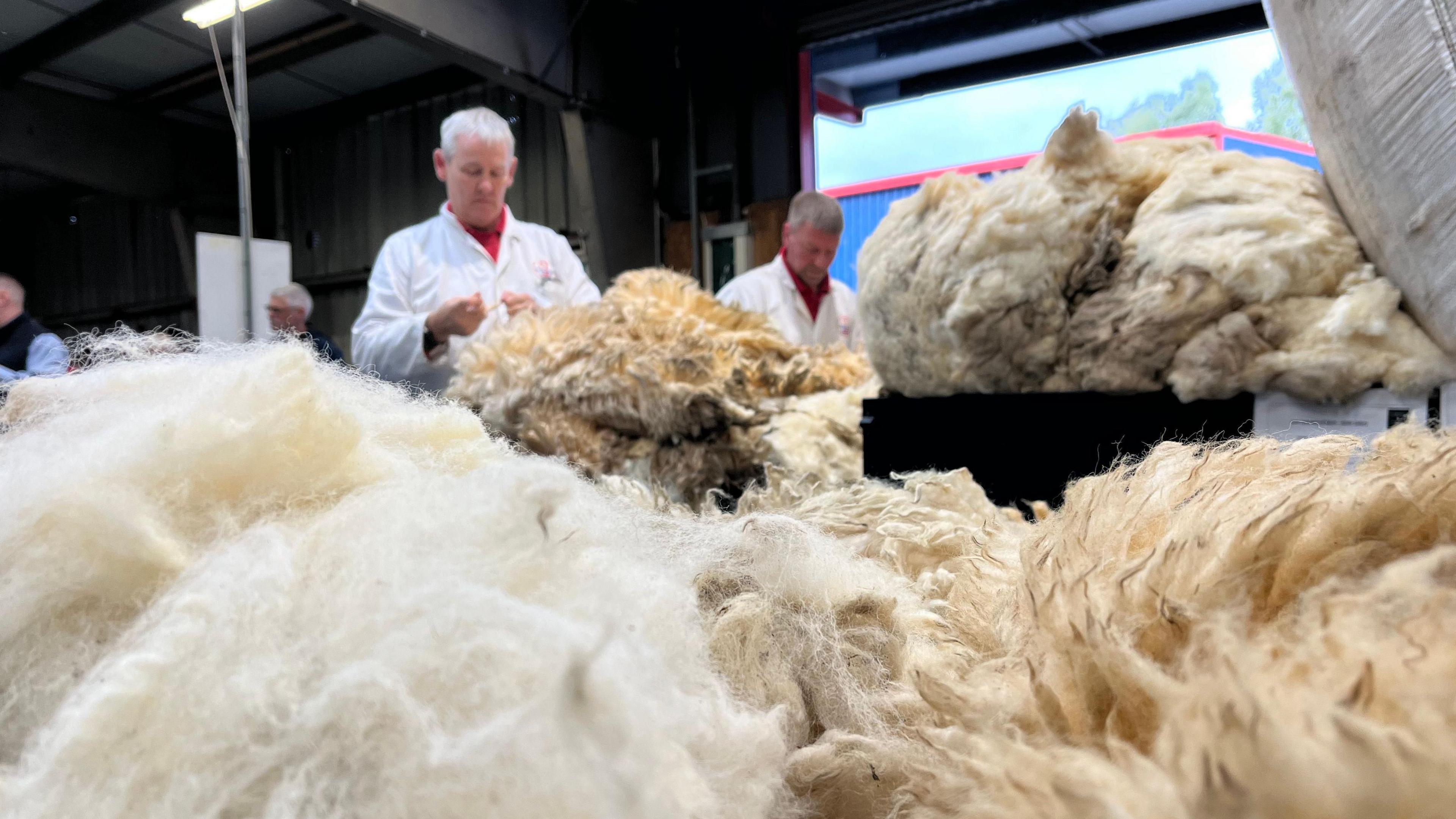
Freshly sheared fleeces are graded at the British Wool depot in Selkirk
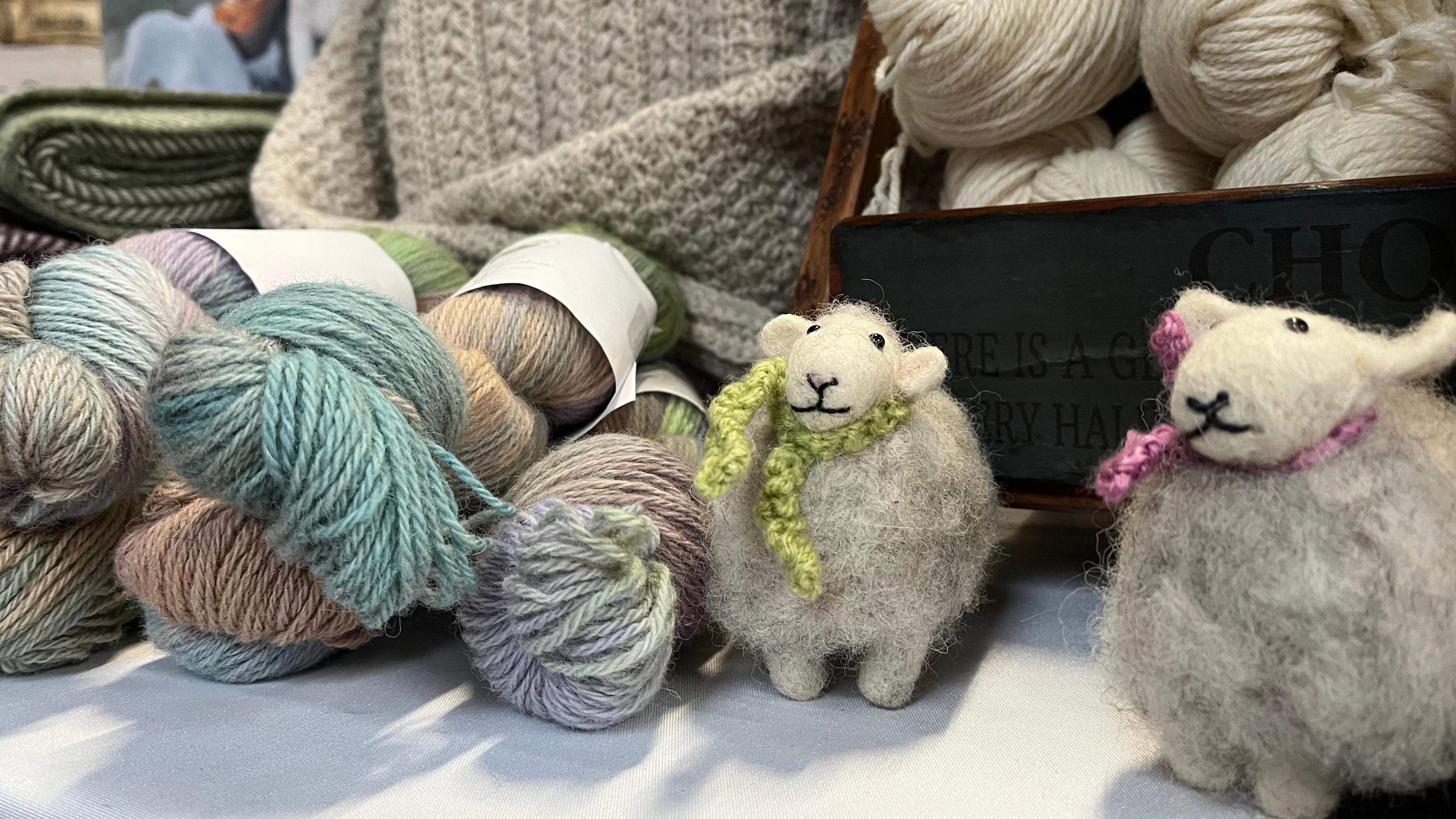
Sheep farmers hope that the prices for wool will continue to rise
From a price peak of about £14 per kilogram in the 1950s, raw wool's value tumbled to less than 75p per kilogram in the early 2020s.
The drop led to many sheep farmers destroying fleeces rather than enduring the further cost of transporting them to sorting depots.
Jim Robertson has a flock of 950 cheviots on his farm near Langholm, which costs him more than £2,000 to have sheared each year.
Mr Robertson, who is also chair of the British Wool co-operative, said: "When you wear wool you know you have something special on your back.
"I believe we are finally getting away from fleeces being seen as a throw away product.
"The price of fleeces will now be covering the cost of shearing again - which it wasn't for quite a while - and that can only continue."
British Wool, which is celebrating its 75th anniversary this year, is owned by Britain's 30,000 sheep farmers.
As well as its Scottish grading depots in Selkirk and Evanton, it operates three collection centres in England, two in Wales and one in Northern Ireland.
Chief executive Andrew Hogley added: "British wool isn't just a legacy fibre, it's material for the future, and is gaining new relevance in a world increasingly concerned with environmental impact."
Related topics
- Published28 September
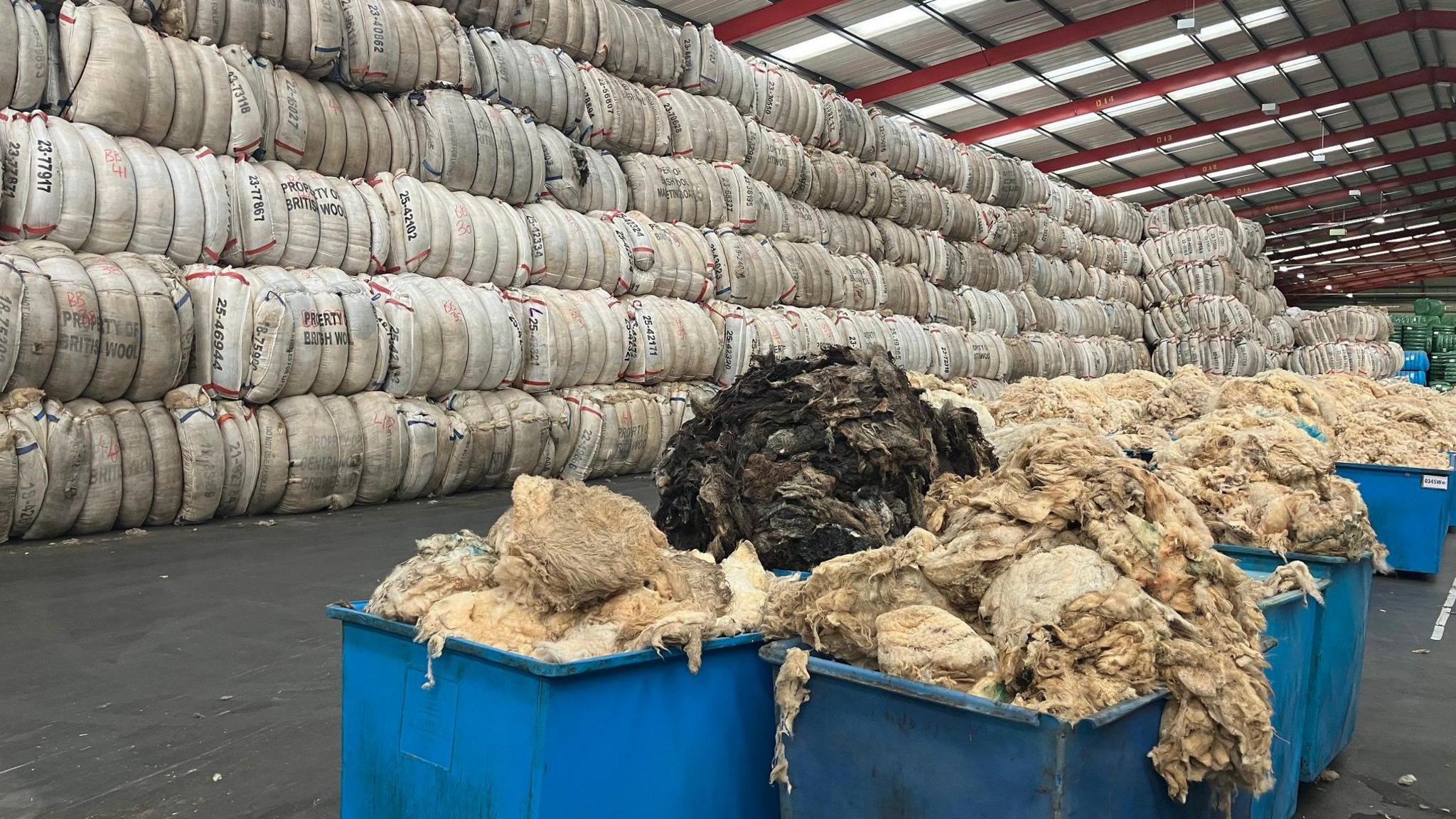
- Published23 November 2024
